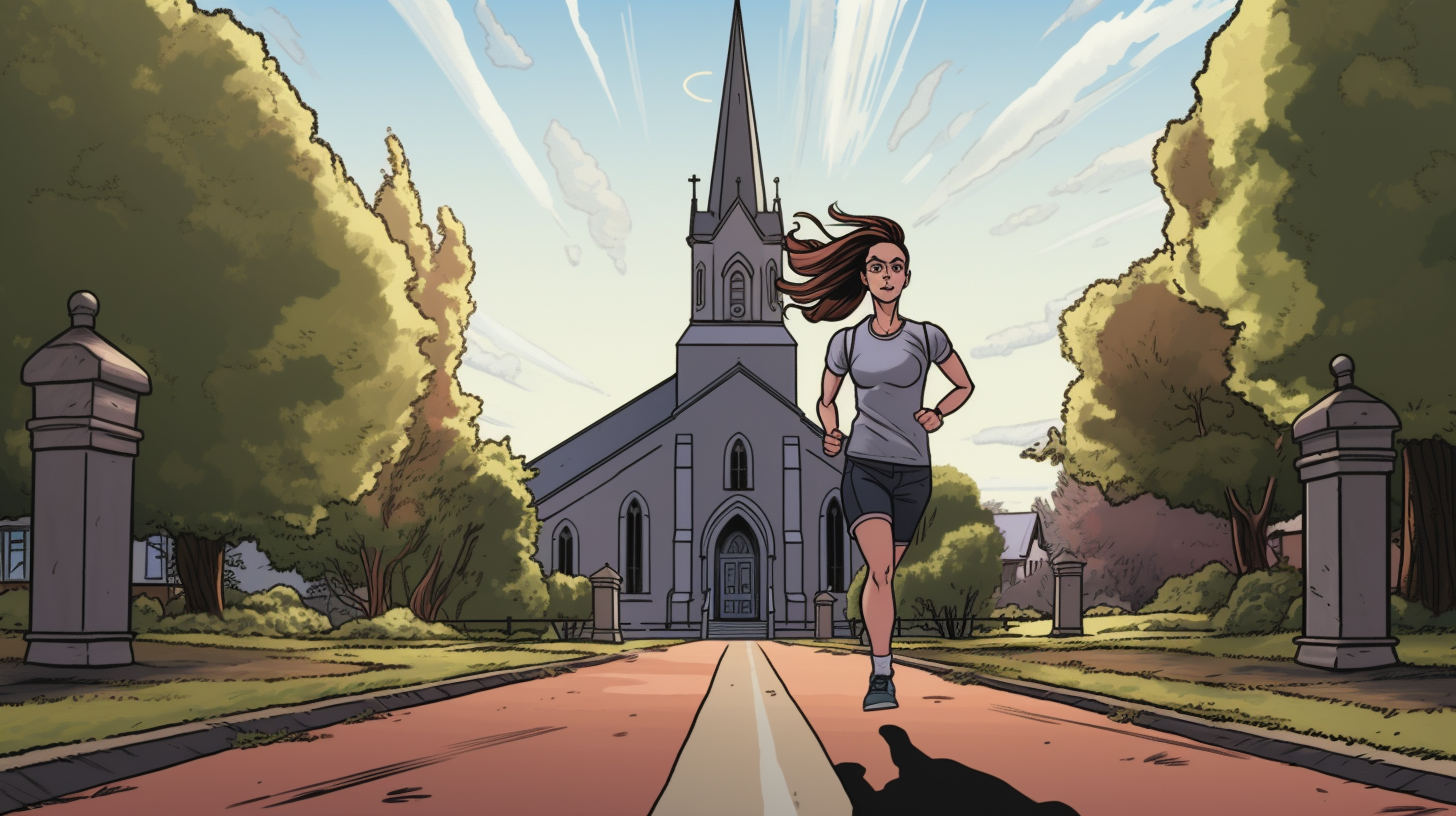The strange new way we’re finding meaning in our lives 🧘

Continuing on the themes I’ve been exploring over the last two weeks. If you’ve missed them you can find part 1 and part 2 here. What’s the theme? Oh, how we find meaning and make sense of this dysfunctional world of ours.
Now traditionally, when the world resembled a giant dumpster fire of despair, many of us would turn to the almighty for help. Indeed, people’s belief in religion and their attendance at religious places go up whenever there is a recession. But that relationship has gotten weaker over time.
In fact, in many countries around the world, there has been a dramatic increase in the number of people who are nonbelievers or unaffiliated with any organized religion.
This group has been rather unimaginably called the “nones”, people who don’t identify with any major religion. These Nones now represent 30% or more of the adult population in the United States and Canada, as well as numerous European countries. In Japan, Israel, and Uruguay meanwhile, those numbers are even higher.
Which all sounds very predictable and nothing new here. But the fall in religion is only half the story. And in this week’s Brink, I’m going to tell you what has replaced our faith in god and religion, and it’s not quite what you think.
Spiritual but not religious 🧞

While church attendance and its religious equivalent is down, spirituality has not gone anywhere. Only 7 percent of Americans identify outright as an “atheist” or “agnostic”.
Instead the overwhelming majority - 72% and rising - of the ‘None’s’ that journalists are suddenly so curious about say they believe in “something”. (side note: all the stats in this section are taken from Tara Isabella Burton’s great book Strange Rites: New Religions for A Godless World hence why there are no hyperlinks to the data).
Digging deeper into the Nones shows there is a fervent belief in the supernatural, it’s just not tied to Christianity or Islam, or any other of the world’s big religions. More than 40% of the nones say they talk to a ‘god’ of some sort, and 13% of those that do say this figure talks back to them.
Nearly half of them say they experience spiritual peace and well-being at least once a week, a number that has increased over time, according to Tara Isabella Burton and her great book Strange Rites.
In fact, the beliefs this group holds stretch far and wide across the spiritual spectrum. For example:
- 47% believe in the presence of “spiritual energy” in physical objects.
- 40% believe in psychics
- 38% believe in reincarnation
- 32% believe in astrology
- And two-thirds of this group hold more than one of these beliefs at the same time.
This smorgasbord of spirituality has borrowed bits from mainstream religions and combined them with ideas that sit firmly outside them. This has been called “unbundling” by Harvard Divinity scholars Casper ter Kuile and Angie Thurston or the “Spiritually Remixed” by Tara Isabella Burton.
A better way of describing all of this is to think about it more broadly: as individuals we have moved from an institutional form of spirituality to an intuitional one. As in, we rely more on our personal views to help form meaning in this area than we rely upon bigger, more static ideas that may have taken centuries to form and been passed down. In fact, these older ideas are often the very things these spiritual beliefs are in conflict with.
Wellness culture, modern occultism, social justice activism, techno-utopianism, and even the long, slow march of gender equality all rely on a fundamental mistrust for institutions and traditions that have held some parts of society in place, for better or for worse.
Like our phones and social media feeds, we too want to customise our beliefs, which is leading to some interesting ideas emerging.
Three-quarters of millennials now say they agree with the statement, “Whatever is right for your life or works best for you is the only truth you can know.” When that same question was asked to those over 60, that number fell to 39%.
And do you know who has been on hand to help you build your own spiritual world? Capitalism.
I buy, therefore I am 🙌

Do you have a friend who attends the same spinning class, or yoga session, or fight club? Or swear by Oat Milk over all else, or juice cleanses, or Sweaty Betty yoga pants, or heck, solely eating red meat?
Or you may have seen celebrities who just years or months before were falling out of nightclubs but now are selling you a wellness retreat for a special once-in-a-lifetime price? They are doing, what Burton calls creating their own intuitional religion.
What’s novel about this idea in today’s age, is that there are for-profit companies and platforms on the internet that allow us to accelerate the spread of these ideas. If you’re a fan of trends in capitalism - and I certainly am - you might have noticed how shopping, decorating, and caring for our bodies have taken on new meanings.
We can now buy our beliefs: we want eco-friendly goods, or we want to be able to practice self-care to such a degree that it creates an almost mythical quality. Indeed, a 2018 study by the aptly named Virtue - the branding partnership arm of Vice Media - proclaimed that spirituality was the next big thing for millennial-focused marketing.
Even brands that you would think have nothing to do with spirituality or religion have taken up this intuitional remixing of belief. Facebook used to invite academics into its offices to espouse the virtues of Buddhism to help improve the site’s harassment tools, and Google offers productivity courses and ‘mindful lunches’ that borrow ideas from Zen Buddhism to increase productivity.
We get sold these ideas all the time:
- Nike used the Black Lives Matter movement in advertising one of its ambassadors
- Chick-fil-A donated to anti-LGBT-marriage groups.
- Gillette sold razors by using the #MeToo movement to implore would-be buyers to be “The Best Men Can Be”
If you connect with these ideas, it is scratching that part of you looking for meaning and sense in the world. It’s your very own form of religious belief. And you can buy it!
When two tribes go to war ⚔️

Religion you say? This doesn’t sound very religious. But oh they do. Let’s very briefly consider what we understand to be a religion - I promise I’ll be brief.
Emile Durkheim the sociologist who spent a lot of his time thinking about religion described it as a glue that holds society together: a set of rituals and beliefs that people affirm in order to strengthen their identity as a group.
More recent thinking expands on this idea. Peter Berger, a religious scholar who wrote the book The Sacred Canopy said religion helps us form an orderly picture of the world and how we should act within it.
By using this lens to look at these new ways of being, they take on the flavour of religions, but typically for one person. And then comes the internet.
As we can now speak to people everywhere all at once, ideas have spread, rapidly. Open Instagram or any social network and you’ll find these ideas being talked about all of the time: whether its wellness culture, toxic people, toxins in your blood or your food, masculinity and the Andrew Tateisms of the world, environmentalism, social justice, identity poilitics, they all have a common thread running through them.
This thread goes something like this:
- The world has mistreated you, or your friends or your environment, and here is a way to remedy it.
- The world typically is full of opponents, be they institutional or individual, who are hostile to your way of doing things, so you need to be ready to challenge them.
- But ultimately this belief is a solo pursuit, but you can get a sense of community by doing it with others.
- Oh and there is probably some form of financial exchange in order to access or take part in this new religion.
Now, this isn’t a criticism on any of these ideas, it’s more trying to get to grips with why so many of us find the internet a shouty, angry place full of tribalism. As I’ve said in previous newsletters, the world can appear a random, chaotic, and tragic place at times.
Our heads are designed to find a way of understanding that world, and creating meaning and belonging as the universe looks on, apathetically. And if doing yoga 12 times a week or shouting at people on the internet gives you meaning and purpose, peace be with you, my brothers and sisters.
But for the rest of us, and the newspapers that are saying religion is no more, I invite you to look more closely, and you’ll find a dizzying mosaic of the spiritually remixed everywhere.
Things we learned this week 🤓
- ☕ Bad news for coffee drinkers - too much of it can impair learning in later life.
- 🐕 Anxious? Avoidant? So might be your pet, says scientists.
- 😔 Depression changes how we expeirence others.
- 💻 Internet does not harm your health, says new research.
If you would be so kind 🙏
Do something nice for someone. If that person is me, then the nicest most nicely thing would be to share this with a friend if it resonates. But doing nice things for others is great too.
I love you all. 💋






